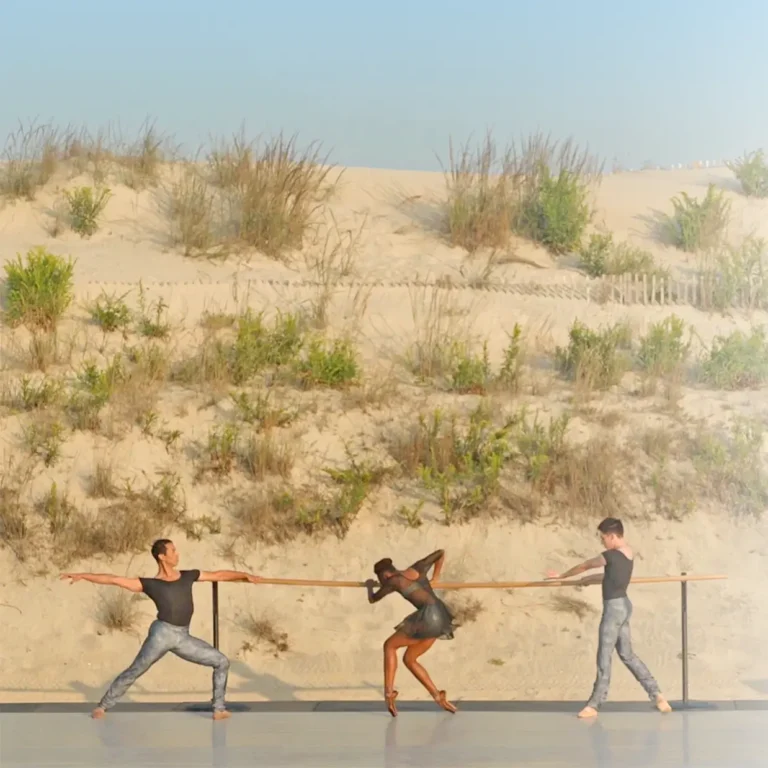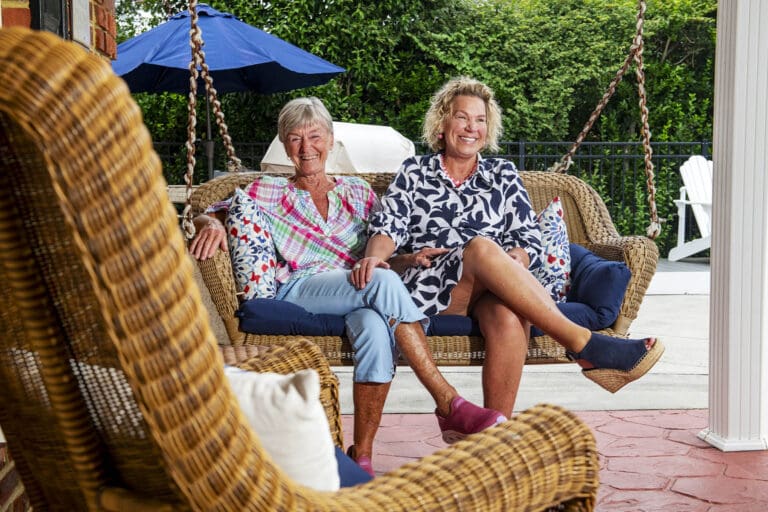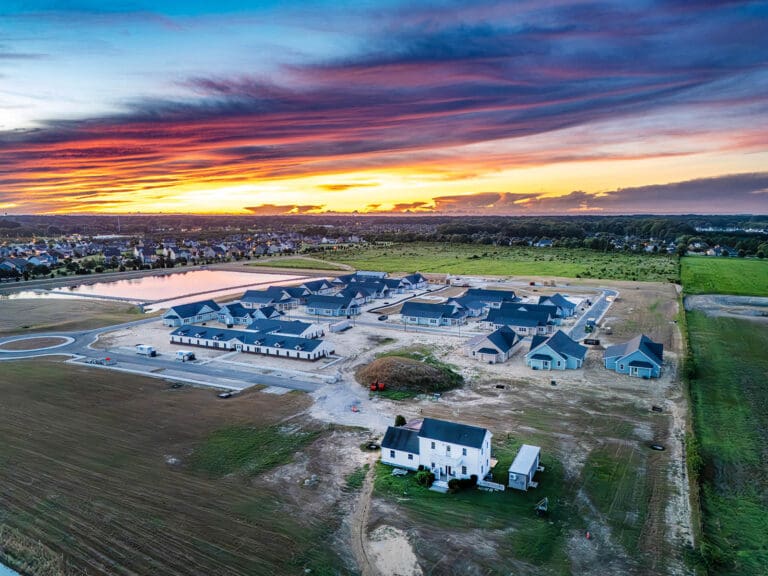A conversation with Tara Dower, the Virginia Beach-based ultrarunner who recently posted the fastest Appalachian Trail time in history
Tara Dower emerged from the moonlit, Springer Mountain, Georgia, forest just before midnight on Sept. 21, 2024. Silhouetted by a bobbing headlamp halo, she willed her exhausted legs to carry her down the dirt path to the bronze plaque marking the Appalachian Trail’s southern terminus.
The 31-year-old pro ultramarathoner from Virginia Beach palmed the monument, collapsed onto her knees and entered the history books. She’d run 2,189 miles in under 41 days and shattered the overall record for the route’s fastest known supported thru-hike by a stunning 13 hours.
Here, we catch up with Dower to talk about life in Virginia Beach, her incredible achievement, and more.
This interview has been edited for length and clarity.
Coastal Virginia Magazine: Tell us about your background with the outdoors and how you got into long-distance trail-running?
Tara Dower I grew up in Wake Forest, North Carolina, from five years old on and my family was super outdoorsy. We spent a ton of time in the woods hiking and camping, so that was sort of boiled into my upbringing.
I got serious about soccer as a little kid and was competitive about it. Then I joined the track team in middle school as an afterthought, because I wanted to hang out with my friends. It turned out I was good at the mile, so I stuck with it.
I ran cross-country in high school and placed decently at regional and state tournaments but played rugby at East Carolina University. I guess that’s where I got some of the grit and mental toughness you need for long-distance trail running.

The idea to do a normal AT thru-hike came after college. I tried in 2017 but had a bad panic attack 80 miles in and had to quit. I went for it again in 2019 and finished the trail in 5 months, 10 days.
Now, that’s not particularly fast. But it inspired me to consider trying to go fast. I started trail-running, which naturally led to competing in ultramarathons. I fell in love with the sport because it’s so unique—you’re out in these beautiful natural areas, barely seeing anyone for hours on end, and yet you’re competing against others and pushing your body to its physical limit.
I set the record for the fastest known time on North Carolina’s 1,175-mile Mountains to Sea trail in 2020 and things ramped up from there. I’m now a full-time athlete [primarily sponsored by Altra] and compete in a handful of major ultramarathons each year. I also try to go for at least one fastest known time on a notable long trail.
How’d you come to live in Virginia Beach and what are your thoughts about the area?
My husband is a Navy diver and was restationed to Virginia Beach in 2022. As someone who loves mountains, I wasn’t too stoked about relocating. But I’ve since come to really love the area.
The city has a population that supports a [great arts, food and culture scene], yet there are so many great conservation areas right nearby. And the trails here are amazing. I love, love, love First Landing State Park, which has a 20-mile loop that’s my go-to for weekday runs.
Oddly enough, part of the reason I think I got so fast was training on mostly flat ground. It’s taught me to push myself in a way that’s different from running uphill, where you’re moving comparatively slow. And when I need to do elevation work, I go run up and down the lovely manmade hills at Mount Trashmore Park.
What inspired you to attempt to break the AT speed record?
I decided I wanted to be a pro runner in 2021. I hadn’t done much that justified that decision, but I was sure I wanted to devote my entire being to that goal. Breaking FKTs and winning races like the Hellbender 100—where I set the women’s course record— built my confidence.
I started thinking about the AT record when I broke the FKT for the 300-mile-long Benton MacKaye Trail, which traverses Great Smoky Mountains National Park and is considered one of the country’s toughest trail runs. I finished and thought, ‘Whoa, I feel good enough to keep going.’ Hiking the AT introduced me to my passion, and it seemed fitting to return to where it all began.
Can you bring us inside your record-setting AT run and what it was like for you on the trail?
Going in I knew this was going to be the toughest challenge I’d ever faced, and I spent two years training and planning in advance for it. I did a ton of research and made this massive binder with information like every single road intersection with the trail. I also worked with mentors like Jennifer Pharr Davis and Karl Meltzer, who’ve both previously broke and held the AT record.
My mom and best friend drove a support vehicle and stayed with me the entire way. Volunteer crew members ran with me as pacers, carried food, water and told me stories to keep me awake. The crew would fix meals, setup my tent, fill water bottles—you name it. That let me focus on nothing but running and my body.

In terms of the run itself, the trail has 465,000 feet of total vertical gain and I averaged about 54 miles a day. I’d wake up at 3 a.m., grab breakfast, tape up blisters or sores on my feet and get going within 30 minutes. I ran or hiked for about 17 hours, stopping only for short breaks, quick meals and 90-second powernaps. Pacers rotated constantly, so I only ran alone about 20 percent of the time, mostly at night. When I did, I’d listen to audiobooks or movie soundtracks to stay awake and keep going. I only bathed three times on-trail and relied on baby wipes to clean up.
I refused to think about anything but executing the plan until the final three miles. I took some nasty falls early on and was worried I’d fall again at the last minute and have to stop. When I finally let myself acknowledge what was happening, it was the most amazing feeling. I was shocked and felt so, so grateful for all the support and for having the opportunity to be able to do something like this. It was definitely the adventure of a lifetime!
What’s next for Tara Dower?
Right now I’m focused on recovering from the AT, which was extremely hard on my body and took a mental toll as well.
I lost every ounce of unnecessary fat, had to eat upward of 10,000 calories a day to keep going, and didn’t get much sleep. Meanwhile, the nonstop activity and constant focus on a single goal alters your hormone balance and makes it emotionally difficult to adjust to being back in society full-time. So, for the moment, I’m just taking it easy and not forcing anything.
That said, I do have my eye on the 273-mile Long Trail in Vermont. That one’s definitely on my bucket list.






























